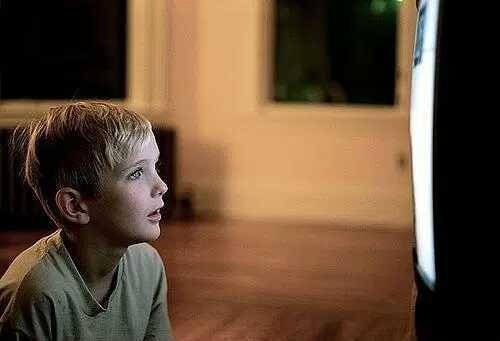The Good and Bad Effects of TV on Children

It is hard to avoid television if you are a kid.
People in the house are usually tuned in to TV – siblings as well as parents. In some homes, the television is perpetually “on” even without anyone watching. It is common for parents and caregivers to use TV as a substitute babysitter. Also, many parents buy videos that they think can make their kids smart. But how does watching TV really affect children?
The bad news is, the majority of experts think that a TV/video-driven culture has bad effects on kids – and may prevent kids from being smart. They cite the following:
TV provides no educational benefits for a child under age 2. Worse, it steals time for activities that actually develop her brain, like interacting with other people and playing. A child learns a lot more efficiently from real interaction – with people and things, rather than things she sees on a video screen.
TV viewing takes away the time that your child needs to develop important skills like language, creativity, motor, and social skills. These skills are developed in the kids’ first two years (a critical time for brain development) through play, exploration, and conversation. Your kid’s language skills, for example, do not improve by passively listening to the TV. It is developed by interacting with people, when talking and listening is used in the context of real life.
TV viewing numbs your kid’s mind as it prevents your child from exercising initiative, being intellectually challenged, thinking analytically, and using his imagination.
TV viewing takes away time from reading and improving reading skills through practice (Comstock, 1991). Kids watching cartoons and entertainment television during pre-school years have poorer pre-reading skills at age 5 (Macbeth, 1996). Also, kids who watch entertainment TV are also less likely to read books and other print media (Wright & Huston, 1995).
According to Speech and language expert Dr. Sally Ward, 20 years of research show that kids who are bombarded by background TV noise in their homes have trouble paying attention to voices when there is also background noise.
Kids who watch a lot of TV have trouble paying attention to teachers because they are accustomed to the fast-paced visual stimulation on TV. Kids who watch TV more than they talk to their family have a difficult time adjusting from being visual learners to aural learners (learning by listening). They also have shorter attention spans.
School kids who watch too much TV also tend to work less on their homework. When doing homework with TV on the background, kids tend to retain less skill and information. When they lose sleep because of TV, they become less alert during the day, and this results in poor school performance.
A 2014 study published in the International Journal of Cardiology suggests that children aged 2 to 10 who watch TV for more than two hours a day is 30% more likely to be at risk for blood pressure compared to those who spend less time in front of TV. Lack of physical activity increased the risk even more – by 50%. The lead researcher Dr Augusto Cesar de Moraes, from the University of Sao Paulo, Brazil, warned that the condition can cause cardiovascular problems later in life. The findings are consistent with an earlier 2009 study.
TV watching also affects a child’s health and athletic ability. The more television a child watches, even in the first years of life, the more likely he is to be obese and less muscularly fit, according to a study by the University of Montreal. Even though your kid does not aspire to be a football star, his athletic abilities are important not only for physical health, but predicting how physically active he will be as an adult.
Every hourly increase in daily television watching from two and a half years old is also associated with bullying by classmates, and physical prowess at kindergarten, said Professor Linda Pagani of the University of Montreal and the CHU Sainte-Justine children’s hospital.
Hi! I am a robot. I just upvoted you! I found similar content that readers might be interested in:
https://www.raisesmartkid.com/all-ages/1-articles/13-the-good-and-bad-effects-of-tv-on-your-kid